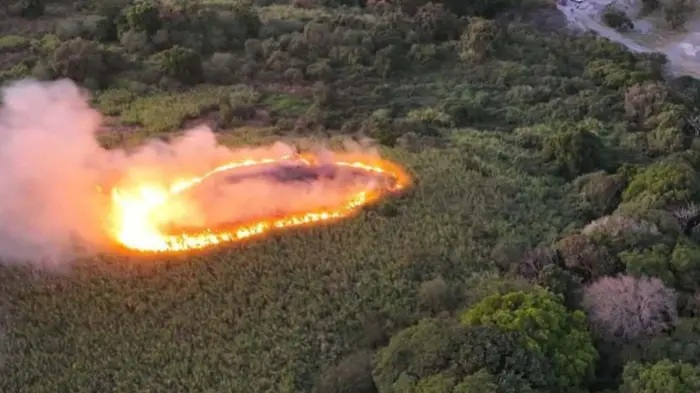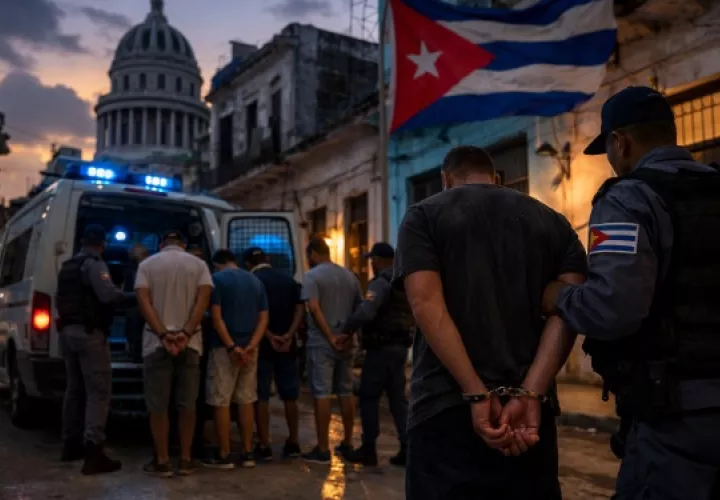‘U.K. Government’s BBC Funding Freeze Slammed By Industry Leaders

By Naman Ramachandran (AP)
As the BBC enters its centenary year, its future appears more precarious than ever before. An oddly timed government decision this week to freeze the U.K. TV license fee, which is the primary source of income for the BBC, has reignited fierce public discussion about the corporation’s funding model — and whether change can happen fast enough for the world’s oldest national broadcaster.
Up for debate is whether Boris Johnson’s government is genuine in its urgent desire to safeguard the public broadcaster, or momentarily deflecting from a political firestorm. The freeze comes as the beleaguered U.K. prime minister is facing calls to resign amid revelations that 10 Downing Street hosted several parties while the U.K. was in lockdown between 2020 and 2021.
Diversion tactic
“[The license fee freeze] strikes me as a very sudden, last minute, not-yet-thought-through release of a decision before the discussion and debate and research has even taken place,” declares “The Death of Stalin” filmmaker Armando Iannucci. “I think people already can see that it’s a very panicky diversion tactic.”
The BBC is a public service broadcaster established by Royal Charter, which sets out the parameters of its operation. It’s funded by a license fee — currently £159 ($216.60) — that’s paid annually by every U.K. household that tunes in to BBC services, and which rises incrementally every year. In the 2020/2021 financial year, license fee funds amounted to $5.1 billion.
For years, there’s been a movement to switch this funding model, which many deem outdated. But in the meantime, a two-year freeze will amount to a budget shortfall of £285 million, according to BBC director-general Tim Davie, who warns of “less services and fewer programs.”
Pat Younge, co-managing director at Cardiff Productions who previously led BBC Television Production studio, says the license is the “least bad” funding option for the BBC, which “not only gives the BBC a level of income to make it competitive but also guarantees its independence from the government of the day.”
As set out in the Charter, the BBC’s mission is “to act in the public interest, serving all audiences through the provision of impartial, high-quality and distinctive output and services which inform, educate and entertain.” To this end, the corporation operates 10 national TV channels, a streamer (10 national radio stations, 40 local radio stations and produces regional TV and radio programs.
Age of disinformation
“In the age of misinformation, and disinformation and deep fake videos, and algorithm-driven social media and SVOD platforms, you do need a broad public space populated with public media content and the BBC holds that digital public space and makes that available. We mess around with that ecosystem at our peril,” says Younge.
BBC services have greatly benefited the country’s creative community, including artists like award-wining filmmaker Mark Cousins (“The Storms of Jeremy Thomas”), who grew up in working class Belfast, Northern Ireland, in the 1970s during the period of unrest known as the Troubles.
The Beeb introduced Cousins to Orson Welles, Bertolt Brecht, and Stephen Sondheim, among many others. “An algorithm would never have suggested those things,” Cousins told Variety. “The BBC was a lifeline for me. It opened me up to so many experiences. It knew that the market fails to deliver a range of pleasures and experiences, and social inequality blocks pleasures and experiences.”
While Cousins is critical of several of the BBC’s editorial policies, he believes it is fantastic value for money at less than 50p a day, providing both entertainment and information. Freezing the license fee during a time of production cost escalation, he says, will make the organization “look smaller and less dynamic.”
Cousins’ views are echoed by Mark Oliver, chair of media, entertainment advisory firm Oliver & Ohlbaum Associates, who says the BBC is “probably going to have to dilute its services” due to the freeze.
Oliver forecasts more repeats, a cheaper mix of programs and more co-productions with global platforms. Iannucci describes co-productions with the likes of HBO, Amazon and Netflix as “all good” but “those companies will be in the driving seat” and more empowered to dictate the nature of the show.





